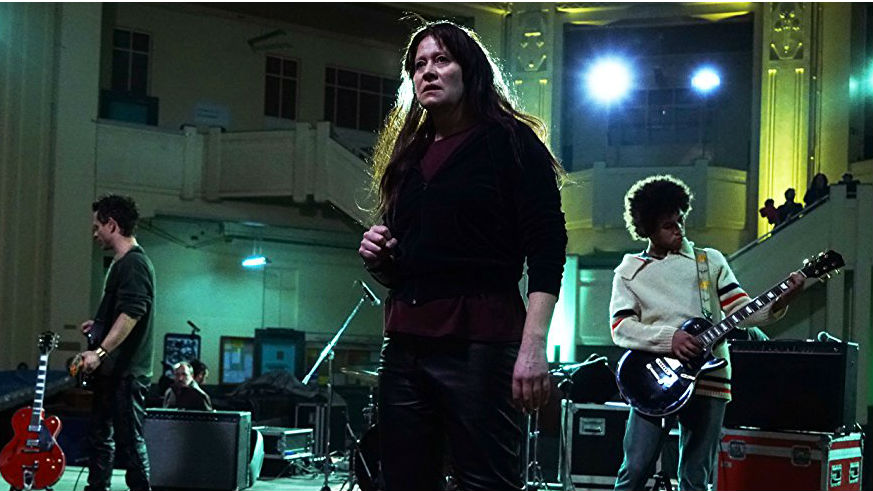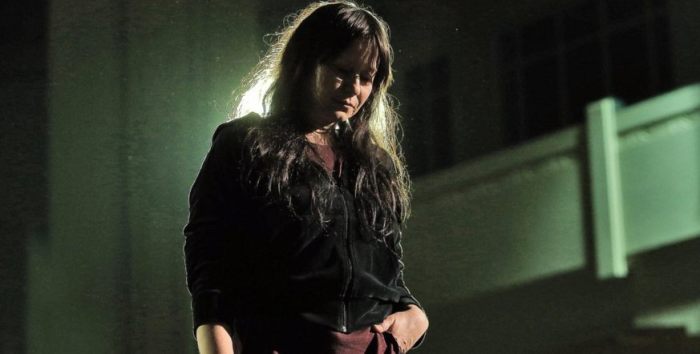Nico, 1988’s writer and director Susanna Nicchiarelli has opened up about just how truthful her biopic of German singer, model and artist Nico actually is, admitting that she exaggerated certain elements of her later life and tour to make the film work.
I recent had the opportunity to discuss “Nico, 1988” with the filmmaker, during which time I quizzed Nicchiarelli about just how much of the film actually happened. Here’s what she had to say.
You obviously did a lot of research and interviews, and at the end of the film you reveal that it is all based on real events, can you talk about how truth the film is?
First of all there are a lot of things that I totally made up. For example the band and certain characters are completely fictitious. Because I wanted it to be a single band, I didn’t want her to change bands or musicians and I wanted these characters to remain throughout the movie. I exaggerated certain things of course, to help the narrative. I changed around dates and concerts and of course a lot of things were fictitious. Because reality and truth can be a cage that forces you to do things a certain way and that can be dangerous. Because then all you are doing is imitating reality and you are not making a movie. I took a lot of liberties. But I wrote that at the end of the film to respect the people that told me about Nico that are her manager, her son, and of course I put in the character all the emotions and all the things that these people told me about her. So it was especially for the portrait of Nico that I had to honor the interviews and people I met and the information I got from them. Of course the story of the movie was inspired by real facts, but then a lot of things were invented and changed basically.
Talk about when you first met Trine Dyrholm –
Well, that’s a big fictitious thing. Because Trine doesn’t look like Nico at all. And that was the first big decision I made when I decided to call Trine, and that was a liberty I took in relation to reality and truth. Because that gave me the opportunity to take a distance. Trine sings and she sings in the movie, Nico’s songs are re-sung by her. Which was very important for me, because as I was telling you before, every song was a major moment. The scenes where she sings live, for me, are important, because something happens to the character. And the character evolves during those live scenes. So I needed the actress to be able to sing live, and interpret them, and not just move her mouth, and have Nico’s voice from 40 years just come out. I didn’t want that. Trine gave me that possibility because she is a great actress, and she was one of my favorite actresses. She gave me the possibility to do that, and didn’t work on imitating Nico but finding our own Nico. At the same time we knew we were going to be using archival footage, so people would see the real Nico from the icon period. So I wasn’t trying to trick the audience. I didn’t take a young actress playing Young Nico that looked like Trine. The real young Nico is there in the movie. My Nico is Trine. That was also a way to make the story more universal. If you stuck to the real character then you are making a movie for fans. And nobody else will care about it, and the fans will only be disappointed anyway because the movie will never be really with her inside it will always be an imitation of the real Nico. I thought it was better to just take the story and make it your own.
What did Trine bring to the performance of Nico then?
It is a certain vital energy that certain people have. And the form of empathy that even if they are nasty and horrible you are going to love them. That is Trine. That is what she has. Certain actors have that, and she has such a strong and positive energy. Nico’s son told me once, ‘I was certain I was going to die before my mother because she was indestructible.’ And I needed that kind of thing. Because that is what I like about Nico. She is a very iconic, funny woman, she was a very strong woman. I needed that kind of energy. And that is what I found in Trine. She had a very particular way of living with her body and looks. Trine is very generous in that way as an actress. She is not vain; she is not one of those actresses that is always trying to look pretty. She is very herself in every movie, and she puts herself totally in the character. Sometimes you don’t even recognize her from one movie to the next. So I needed that kind of generosity.
“Nico, 1988” is now in cinemas.
















